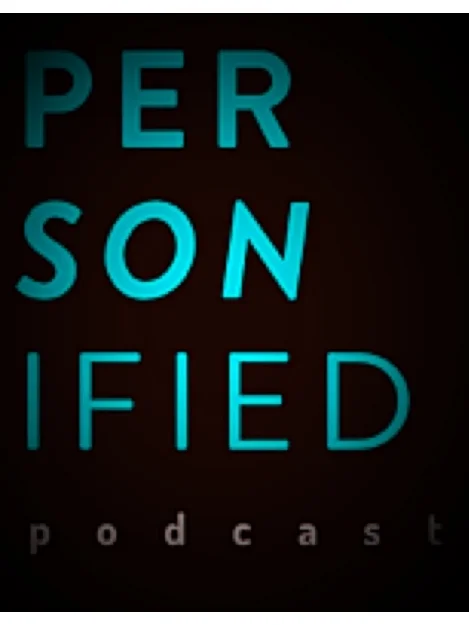November 2, 2015
I'm going to blame John Steinbeck for all this. But more on that later.
First, let me tell you this: Most people who know me will ask a similar question whenever I tell them I’m creating a podcast on which I conduct interviews with people, one-on-one: They ask me, “Do you think you’ll be able to actually...you know...allow the guests to talk?—Isn’t that sort of a necessity?”
They aren’t wrong. I’m not exactly regarded as the best listener, and I wouldn’t argue that general assessment. If ten years of teaching high school English and reflecting on my strengths and weaknesses have taught me anything, it's that I have some work to do in the communication department. However, I would argue if anyone claimed I wasn’t a least trying to get better. Oh, I've been trying. Lordy, I've been trying.
I’ve tried to be conscious of myself when interacting with others. I’ve even been able to take notice when I fail to let someone speak—when I’m all caught up in yet another one of my tangents—but my observance of my conduct hasn’t quite led yet to any significant changes in my actual behavior. And that really has to stop.
I have to get better. I mean, sure, if the miscellaneous interviews I’ve recorded over the past year are any indication, I've been making some progress. But my limited listening skills constitute only a small portion of this story. I have another goal in mind, and it's one I find far more significant.
I teach AP English, and more and more, as I analyze the topics and tasks asked of my highly capable students, I find myself questioning the purpose of it all—teaching English that is. I mean, I know what I want them to be able to do—I want them to think critically, to be able to analyze and synthesize and evaluate tough concepts and ideas—the problems currently facing humanity, the problems they will soon inherit. But if I'm teaching them how to do all that, doesn't that mean I’m teaching them how to think?
When I say how to think, I don’t mean what to think. I make this seemingly unnecessary distinction because I feel like many people make an implicit assumption when we use that phrase, “how to think”—like it somehow means I’m going to promote to kids my personal philosophies and ideologies when I teach them the skills they need to be critical thinkers.
So why is this idea such a sticking point for me? Because critical thinking requires students to look at things more objectively, more worldly—and doing so often leads to conflicts regarding belief systems, political ideologies, and what I see as an often distorted trust in the value of “common sense.”
While teaching people how to engage in effective discourse, while teaching them how to approach the potentially crucial issues facing our society, I have too often found myself battling their every instinct.
For instance, I ask students to question the warrant, or underlying principle or value, of their logic. But how do I myself question the value I place on logical thinking itself?
Have I questioned my own biases in this area? Have I questioned the value I seem to place upon this philosophy? Should emotional appeals or a person’s credibility on a subject, for instance, count as much as the logical argument a person can generate on the subject? If I’m correct in positioning logic as more important than the other elements of rhetoric, why is it that people as a whole—our society—doesn’t seem to revere, understand, or value logic nearly as much as they do their emotions? My questions remain unanswered, though I have my theories. And I’ve made validating those theories my personal opinion quest, my mission. And it’s all John Steinbeck’s fault.
Recently, while revising my unit on his seminal novella, Of Mice and Men, I came across a quotation attributed to the author:
“In every bit of honest writing in the world, there is a base theme. Try to understand men, if you understand each other, you will be kind to each other. KNOWING A MAN WELL NEVER LEADS TO HATE and nearly always leads to love. There are shorter means, writing promoting social change, writing punishing injustice, writing in celebration of heroism, but always that base them. TRY TO UNDERSTAND EACH OTHER!”
I'll be honest. It was actually the capital letters and the exclamation point that got me. The way it was written—and I’m still not sure whether those were style choices made by Steinbeck himself or by the Internet user who posted the quotation—but something about those choices gave me a deep sense of desperation in the author’s voice. It was as if Steinbeck was pleading with humanity, screaming for them to listen.
To get to know one another. To try to understand one another. As if failing to do so has made humanity less humane.
Steinbeck’s desperation seems to personify the same theme underlying my own concerns, and has thus helped me fully understand my mission. If I am exactly the type of person who has trouble truly listening to others—who likely fails to follow his own advice to understand the thought processes of others—then maybe if I document myself learning to listen and understand, doing so will teach the rest of us how to do it too.
So I need to hear from individuals, all kinds—every kind. I need them to guide me—us—toward true understanding. And to do that, I need to make each one a true person, not a another type. I need to PERSONIFY them.
If I, one person, can help personify what it means to be human, then maybe we humans can help personify what it means to be humane. This is my mission.
Let me know if you’re willing to help.
Dan
